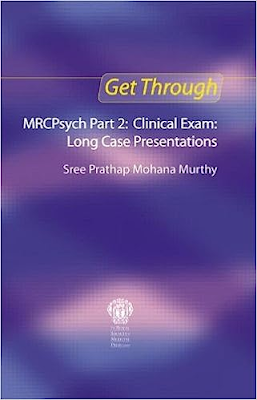Get Through MRCPsych Part 2: Clinical Exam: Long Case Presentations
"Get Through MRCPsych Part 2: Clinical Exam: Long Case Presentations" is a comprehensive guide to preparing for the clinical component of the MRCPsych exam. This book is specifically designed to help candidates prepare for the long case presentation component of the exam, which is an important aspect of the MRCPsych clinical examination.
The book provides a detailed overview of the MRCPsych clinical examination format and covers the key skills and knowledge that candidates need to demonstrate during the exam. The book is well-structured, with clear explanations of the examination process and helpful advice on how to prepare and perform well on the day of the exam.
One of the strengths of this book is its focus on the long case presentation, which is a unique and challenging aspect of the MRCPsych clinical examination. The book provides numerous examples of long case presentations, as well as practical tips on how to structure and present a compelling case study. This makes the book an essential resource for any candidate preparing for the MRCPsych clinical examination.
In addition to its comprehensive coverage of the long case presentation, the book also includes important information on other aspects of the MRCPsych clinical examination, including the short case presentation, the mental state examination, and communication skills. This makes the book an all-in-one resource for MRCPsych candidates, providing everything they need to know to prepare for and succeed on the clinical examination.
Overall, "Get Through MRCPsych Part 2: Clinical Exam: Long Case Presentations" is a well-written, comprehensive guide to the MRCPsych clinical examination. Whether you are a trainee psychiatrist, a consultant psychiatrist, or simply looking to enhance your knowledge and skills in psychiatry, this book is an essential resource for your MRCPsych exam preparation.

Comments
Post a Comment
Your Thoughts?